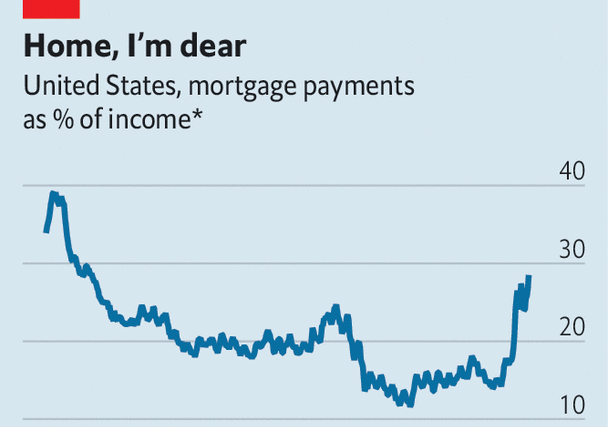Central banks worldwide, spanning from China and Japan to Brazil, Britain and Canada, are embarking on a collective journey into the realm of digital currencies. This strategic move is aimed at averting the potential dominance of the private sector in the fast-paced world of transactions, fueled by the gradual decline of cash usage.
As this global pursuit unfolds, Europe stands at the forefront with a significant step: the introduction of the Digital Euro. This digital currency, a comprehensive legal framework, unveiled by the European Commission in June 2023, promises to redefine transactions across the Eurozone, both online and offline. However, amid the anticipation of seamless transactions, concerns loom over the prospect of increased financial crime and online fraud.
To shed light on these concerns, we chatted to Tamas Kadar, CEO of fincrime specialist SEON, delving into the intricate interplay between the Digital Euro and the ongoing battle against illicit financial activities.

What are the main concerns around the implementation of the Digital Euro?
Some people are concerned that Central Bank Digital Currencies (CBDCs), such as the Digital Euro, could one day be leveraged in a way that impinges on the rights and privacy of everyday people. It remains to be seen whether this ends up being the case, but there are certainly pros and cons to adopting solutions of this nature. However, at SEON, we’re more interested in how CBDCs factor into the battle to eliminate online fraud and financial crime.
To this end, the announcement in Europe provides a moment to reflect on how safe these solutions are likely to be. Although it has excited many of my fellow peers, it is also causing concern in some quarters about its potential misuse by fraudsters. While CBDCs, such as the Digital Euro clearly offer benefits in terms of helping to reduce transaction costs, and improving levels of financial inclusion, their impact on rates of financial crime, are less certain.
I believe issues like money laundering and economic fraud could be exacerbated through the introduction of CBDCs. What’s more, we’re quickly moving towards a world where more sensitive financial information is centralised on a single digital ledger, which comes with risk. We must all work now towards establishing safe protocols around how to use these technologies before they’re introduced even more widely.
Are there any emerging trends or techniques that fraudsters are likely to employ specifically targeting the Digital Euro?
From complex social engineering scams to simple phishing attacks, there are a number of approaches fraudsters could take to defraud individuals and businesses out of their digital currency. We must remember that these solutions are still very new to a lot of people and that creates an additional vulnerability. It’s going to be important that people are given adequate education about what safe CDBC protocols look like.
There have also been a number of high-profile money laundering cases in China that have attempted to use the nation’s CBDC, the Digital Yuen. Authorities in the country insist that the additional visibility afforded to them by the transaction blockchain renders Digital Yuen money laundering attempts futile, but fraudsters clearly still see massive potential here, and are often successfully laundering large amounts of money before being caught.
It’s sensible to imagine this is how fraudsters will look to exploit the Digital Euro. In its ‘Digital Euro Privacy Options’ report, the European Central Bank recognised that privacy issues relating to CBDCs needed ‘to be assessed in the context of other EU policy objectives, notably anti-money laundering.’ It’s reassuring to hear this issue is high on the agenda, but we must wait until the Digital Euro is implemented and fully operational to understand its impact.
How does the privacy promised by the Digital Euro affect the ability to track and prevent financial crimes such as money laundering?
Privacy is a huge issue within the Digital Euro debate, and it’s clear the European Commission (EC) wants to do all it can to reassure potential users that their civil liberties won’t be impacted when using the system. At the same time, the EC isn’t going to knowingly build a technology that helps to enhance the effectiveness of money launderers, as this is a huge crime across the continent, which many organisations are committed to stopping.
It’s probably more likely that online fraudsters and financial criminals will continue to leverage decentralised cryptocurrencies when looking to commit money laundering, rather than CBDCs, which are still pegged to fiat currencies. Once again however, a lot of this will have to do with how solutions like the Digital Euro are introduced, as well as the specific measures implemented to ensure that privacy remains protected while not encouraging money laundering.
What potential regulatory challenges might arise with the introduction of the Digital Euro in terms of combating financial crime?
It’s too early to say. First, we need to read the full details of the Digital Euro, and the EC’s plan to introduce it. I’m curious to see whether people will be required to pay capital gains tax on their holdings, and if this is the case, whether the rates that people are charged will be uniform across the continent. It’s also going to be interesting to see how the Digital Euro affects other CBDC programmes happening across mainland Europe, such as the UK’s ‘Britcoin’.
How can financial institutions and businesses educate their employees and customers about the risks and best practices associated with using the Digital Euro?
Companies will find that many employees, especially those in younger age groups already, have good knowledge about cryptocurrencies and CBDCs, as well as more experience with handling money online through the rise of neobanks, which is a great starting point. I think it’s important not to overhype the security concerns surrounding this solution to the point where they begin to sound unbelievable, while still retaining a level of seriousness that demonstrates to employees that this is an issue you’re on top of.
Similarly, I would focus very specifically on areas where CBDCs, such as the Digital Euro could prove to be a potential help or hindrance to your company. While you may have personal views on the subject, it’s probably best to keep them separate, unless they directly impact the work you’re doing on a daily basis. At this point, there is potential that the Digital Euro will be introduced so companies must try to find the opportunities on offer.
Are there any examples or case studies from other countries or regions that have implemented digital currencies, which can provide insights into the potential impact on financial crime and fraud prevention efforts?
Across the world, you can see that CBDCs are becoming increasingly popular. In fact, the Atlantic Council reports that 65 nations are currently in advanced stages of CBDC development. Notably, more than 20 central banks, including those of Brazil, Japan, and Russia, have already launched their own CBDCs. Sadly, almost everywhere these solutions have been introduced they’ve subsequently been used to facilitate online fraud and financial crime.
That’s why I believe it’s so important for the EC and European Central Bank to enforce a highly resilient defence programme. Likewise, it’s imperative that the EC does all it can to ensure people have the necessary information and tools to prevent CBDC fraud early on in the journey before going any further in its pursuit of the Digital Euro. Thankfully, I think we’re already seeing signs that this is how these organisations plan on approaching this situation.



The Most Read
Сryptocurrencies
Bitcoin and Altcoins Trading Near Make-or-Break Levels
Financial crimes
Thieves targeted crypto execs and threatened their families in wide-ranging scheme
Financial crimes
Visa Warning: Hackers Ramp Up Card Stealing Attacks At Gas Stations
News
Capitalism is having an identity crisis – but it is still the best system
Uncategorized
The 73-year-old Vietnamese refugee is responsible for bringing Sriracha to American consumers
Uncategorized
Electric Truckmaker Rivian, Backed By Amazon, Ford, Raises Whopping $1.3 Billion